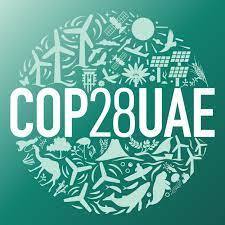Emerging Economies Are Concerned About Renewable Energy Declaration At COP 28
China, India & Indonesia did not sign tripling renewables pledge in Cop28

India was a strong force behind the G20’s New Delhi declaration in September which backed a tripling of global renewable energy capacity by 2030 . But Last week in Dubai, a much bigger group of nations signed a similar pledge. Over 120 countries signed a renewable energy pledge at the ongoing COP28 climate summit to triple the world’s green energy capacity to 11,000 GW by 2030, thereby, reducing the reliance on fossil fuels in generating energy.
G20 nations like China, India and Indonesia were not among them. The large emerging economies are concerned about the renewable energy declaration because it is tied to coal-based power generation& their energy security. Because according to the pledge countries have to double the global average annual rate of energy efficiency improvements from around 2% to over 4% every year until 2030.
The International Energy Agency (IEA) has found that, between 2022 and 2027, renewables will account for over 90% of global electricity capacity expansion. The upward revision is mainly driven by China, the EU, the US and India, which are all implementing existing policies and regulatory and market reforms, while also introducing new ones more quickly than expected in reaction to the energy crisis.
The G20 text clearly said -We Will pursue and encourage efforts to triple renewable energy capacity globally through existing targets and policies, as well as demonstrate similar ambition with respect to other zero and low-emission technologies, in line with national circumstances by 2030.
But unlike the G20 agreement, the Cop28 pledge calls on signatories to “end the continued investment in unabated new coal-fired power plants, which is incompatible with efforts to limit warming to 1.5°C. Historical responsibility for climate change is at the heart of debates. The US has released more than 509GtCO2 since 1850 and is responsible for the largest share of historical emissions, Carbon Brief analysis shows, followed by other developed countries.
The cumulative amount of carbon dioxide (CO2) emitted since the start of the industrial revolution is closely tied to the 1.2C of warming that has already occurred. In total, humans have pumped around 2,500bn tonnes of CO2 (GtCO2) into the atmosphere since 1850, leaving less than 500GtCO2 of remaining carbon budget to stay below 1.5C of warming. Since Global efforts to mitigate climate change are guided by projections of future temperatures.
The G20 nations that didn’t sign the Cop28 pledge are building over four-fifths of the world’s new unabated coal-fired power plants, according to Global Energy Monitor. Even though Renewables growth is propelled by more ambitious expansion policies and according to International Energy Agency forecasting( IEA) both China and India are already going to double their renewables by 2027, putting them on course to triple capacity by 2030 without any extra effort.
For Indonesia, signing on pledge could require early closure of coal-fired power plants and investment in grid stability in the Java-Bali area. The pledge hasn’t come with financial and technical support which probably has made Indonesia reluctant to sign it.
China would also have to struggle to meet the target to double energy efficiency by 2030 in accordance with COP28 Dubai pledge. Energy efficiency is calculated by dividing the size of an economy by its energy consumption and China’s economic growth has slowed down in recent years.
Even though China and India are on track to triple renewable capacity but they were put off by anti-coal language and cost concerns.
The writer of this article is Dr. Seema Javed, an environmentalist & a communications professional in the field of climate and energy




